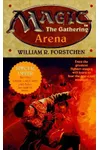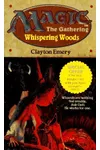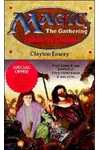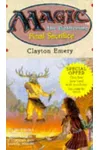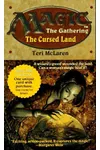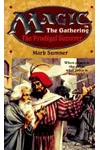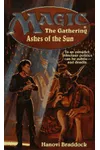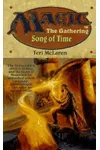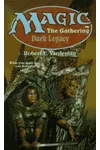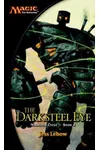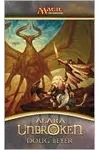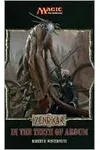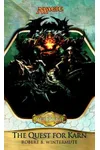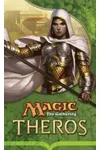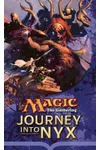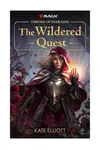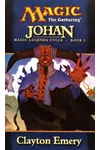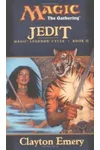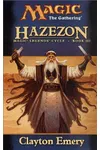Step into the enchanting multiverse of Magic: The Gathering, where planeswalkers wield unimaginable power and every card tells a story! This groundbreaking fantasy series, born from the iconic trading card game, weaves epic tales across a vast cosmos of magical realms. From ancient wars to personal quests, its novels invite readers to explore a universe brimming with adventure and intrigue.
Since its debut in 1993, Magic: The Gathering has transcended its card game roots to become a literary phenomenon. With dozens of books, the series expands the game’s rich lore, offering fans a deeper dive into its spellbinding worlds. Ready to discover the magic? Let’s explore how this saga began and why it continues to captivate.
How Magic: The Gathering Began
Created by mathematician Richard Garfield, Magic: The Gathering started as a revolutionary card game under Wizards of the Coast. Its innovative multiverse concept, initially called Dominia, allowed endless storytelling possibilities across diverse planes. In 1994, Harper Prism launched the first novels to flesh out this universe, starting with Arena by William R. Forstchen. The books aimed to bring the game’s characters and conflicts to life, blending high fantasy with strategic depth.
The early novels were unnumbered to avoid intimidating readers, a clever marketing move by publishers wary of multi-book series. Wizards of the Coast later took over publishing, tying novels closely to game expansions. This synergy between cards and stories created a dynamic narrative ecosystem, evolving with each new set.
The Heart of Magic: The Gathering
The Magic: The Gathering novels span numerous planes and eras, with key titles shaping its legacy. Arena (1994) introduces Garth, a young wizard navigating Dominaria’s magical duels, setting the stage for the multiverse’s stakes. The Brothers’ War (1998) by Jeff Grubb chronicles the epic conflict between brothers Urza and Mishra, a pivotal event in Dominaria’s history. Whispering Woods (1994) by Clayton Emery follows wizard Gull and his chaotic adventures, part of the beloved Greensleeves Trilogy. War of the Spark: Ravnica (2019) by Greg Weisman brings modern planeswalkers like Jace and Chandra to the city-plane of Ravnica, battling the dragon Nicol Bolas.
The series’ themes are as diverse as its planes. Expect epic battles, intricate political intrigue, and personal growth, all woven into a high-fantasy tapestry. The multiverse setting, centered on Dominaria, allows stories to explore unique cultures and magical systems, from Ravnica’s guilds to Zendikar’s wild landscapes. The novels’ style balances action-packed sequences with deep character development, appealing to both game fans and fantasy readers. Whether it’s Urza’s tragic hubris or Chandra’s fiery rebellion, each tale feels personal yet cosmic.
Collaboration is key to the series’ storytelling. Authors like R.A. Salvatore and Mercedes Lackey have contributed, bringing their fantasy expertise to the multiverse. The novels often parallel card sets, adding context to game mechanics and characters, creating a seamless blend of media.
Why Magic: The Gathering Resonates
Magic: The Gathering’s novels have left an indelible mark on fantasy literature and gaming culture. By expanding the card game’s lore, they’ve built a dedicated fanbase eager for each new story. The series’ ability to evolve—shifting from print novels to e-books and online stories—reflects its adaptability, ensuring accessibility for new generations. Its influence extends to comics, video games, and even Dungeons & Dragons crossovers, cementing its status as a multimedia juggernaut.
The series’ lasting appeal lies in its infinite possibilities. With countless planes to explore, the multiverse offers endless stories, keeping fans hooked for decades. Its community thrives on forums, wikis, and fan art, a testament to its cultural impact. For gamers and readers alike, Magic: The Gathering is a gateway to imagination.
- Publication Years: 1994–present
- Number of Books: Over 70 novels and anthologies
- Notable Authors: Jeff Grubb, Clayton Emery, Greg Weisman, R.A. Salvatore
- Setting: The Multiverse, centered on Dominaria
Ready to planeswalk into adventure? Grab Arena or The Brothers’ War and dive into Magic: The Gathering’s spellbinding fantasy universe!
